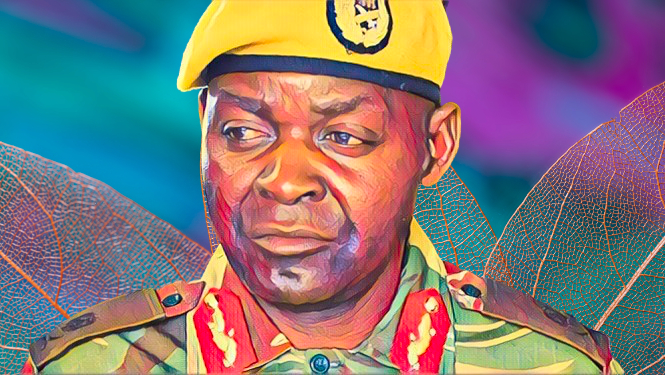The Zimbabwe Electoral Commission (ZEC) has come under intense scrutiny for its refusal to condemn recent remarks by Army Chief Valerio Sanyatwe, which many see as an attempt to influence the upcoming elections. Sanyatwe’s comments urging military personnel to vote in a particular way have sparked widespread concern about the impartiality and integrity of the electoral process.
In a statement that has rattled the nation, Sanyatwe called on soldiers to ensure that they vote for candidates who would safeguard their interests. “We must all be vigilant and ensure we vote correctly to maintain our security and welfare,” Sanyatwe said in a public address. Critics argue that such statements undermine the democratic principle of free and fair elections, raising fears of military interference.
The ZEC, responsible for overseeing elections and ensuring their fairness, has been criticized for its silence on the matter. When approached for a comment, ZEC Chairperson Priscilla Chigumba declined to directly address Sanyatwe’s remarks. “The ZEC is committed to conducting a free and fair election. We will ensure that all processes are transparent and in line with the law,” Chigumba stated, avoiding direct condemnation.
Opposition parties and civil society organizations have expressed alarm over the ZEC’s stance. Nelson Chamisa, leader of the main opposition party, Citizens Coalition for Change (CCC), condemned the comments and the ZEC’s inaction. “The military has no place in our electoral processes. Their role is to defend the country, not to dictate how citizens should vote. The ZEC’s failure to address this is deeply troubling,” Chamisa said.
Human rights groups have echoed these concerns, warning that such statements could intimidate voters and skew the election results. “The neutrality of the military is crucial for the credibility of elections. When senior military officials make partisan statements, it creates an atmosphere of fear and coercion,” said a representative from the Zimbabwe Human Rights NGO Forum.
The controversy comes at a critical time as Zimbabwe prepares for its general elections, set to be highly contested. With a history of disputed elections and political violence, ensuring a transparent and impartial electoral process is paramount for the country’s stability and democratic future.
Political analysts have pointed out that the ZEC’s response, or lack thereof, could significantly impact public trust in the electoral system. “The ZEC’s role is to uphold the integrity of the elections. By not addressing these remarks, they risk undermining confidence in the entire process,” said political analyst Alexander Rusero.
Meanwhile, the ruling ZANU-PF party has defended Sanyatwe, arguing that his comments were taken out of context. “General Sanyatwe was merely encouraging soldiers to participate in the democratic process. There was no directive to vote for a specific party,” said a ZANU-PF spokesperson.
Despite these assurances, the incident has highlighted deep-seated issues within Zimbabwe’s political landscape. The involvement of military figures in politics has long been a contentious issue, with accusations of the military propping up the ruling party and stifling opposition voices.
As the election date approaches, all eyes are on the ZEC to ensure a fair and transparent process. There have been calls for increased international observation and intervention to guarantee the credibility of the elections. “We need international observers to ensure that the elections are free from undue influence and intimidation,” Chamisa urged.
In conclusion, the ZEC’s refusal to condemn Army Chief Sanyatwe’s voting remarks has sparked significant controversy and concern about the integrity of Zimbabwe’s upcoming elections. The situation underscores the critical need for impartiality and transparency in the electoral process to uphold democratic principles. As Zimbabwe navigates this contentious period, the actions of the ZEC and other stakeholders will be crucial in determining the credibility of the elections and the future stability of the nation.
Source: NewZimbabwe.com


